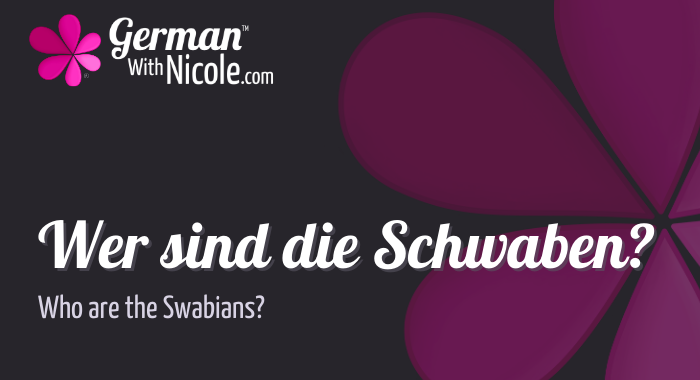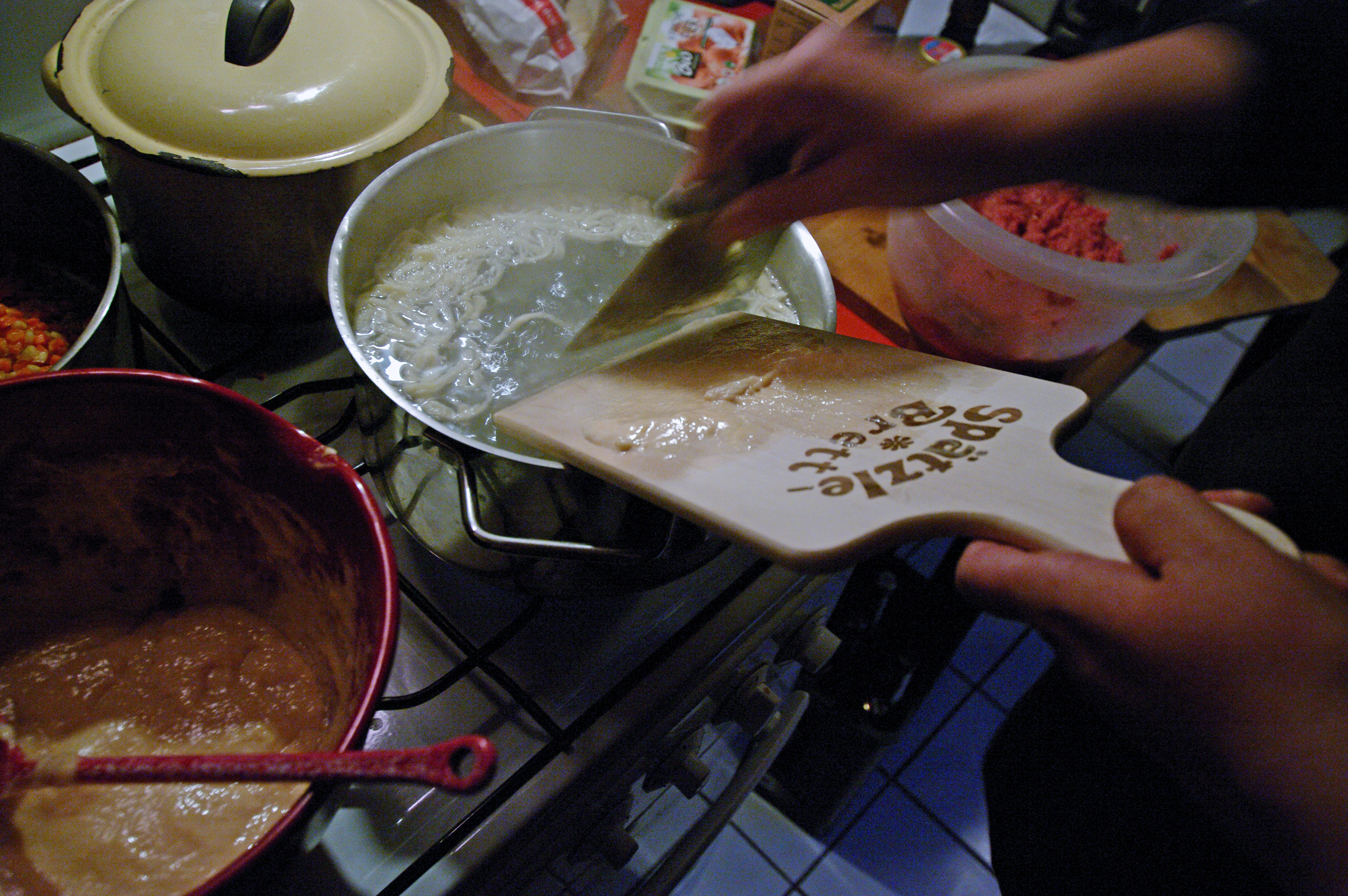Who are the Swabians?

Who are the Swabians?
The Swabians are the people of Württemberg, which is part of the state of Baden-Württemberg in southern Germany. (The folk of the area of Baden are Badisch and their dialect is different.) Each area of Germany has its own characteristics and peculiarities, however since I spent a lot of time there, it's worth spending a bit of time getting to know these hard-working folk. They do not speak what you normally know of as "high German*," but they speak Swabian. It's a dialect far enough removed from Hochdeutsch that many Germans can't understand it.
Swabian is the English translation of "Schwaben." Die Schwaben. A few of their specialties are as follows:
1. Schaffen
Schaffen typically means something is being created, executed, or handled. Not to the Swabians. Schaffen means to work. And work they do. They have a phrase Schaffe, schaffe, Häusle baue: Work, work, build a house. And that's exactly what they do. They are not stereotypically but in reality a very hard-working people and they have a strong infrastructure and stable economy in Baden-Württemberg.
2. Kehrwoche
Germans are typically a very clean folk and the Swabians are a wonderful example of that, especially in their own, unique ritual of the Kehrwoche, literally Sweeping-week. Every Saturday morning the stairwell of an apartment or condo building gets swept and mopped and this duty is traded off between floor habitants. If you live on a floor with three apartments, you can bet that there is a little sign that hangs next to your door the week that it's your turn. When you're done sweeping and mopping on Saturday morning, you hang the sign next to your neighbor's door, and round and round it goes.
3. Spätzle
Oh, delicious Spätzle...how I love thee.
It's pronounced: SCHPETZ-le. (Not "shpatz-el," as my Grandfather used to say.) It's a homemade noodle that's a ton of work and is worth every second. The classic and finest way to make it is with a Spätzlebrett, pictured right. First a thick batter is made and then the metal pastry cutter is used to scoop some onto the end of the Spätzlebrett. Then the pastry cutter is used to slice off just a small amount of batter, which is dropped into boiling water. The Spätzle cooks in a matter of moments and floats at the top.
This process goes on for quite some time, especially if you have a lot of people to feed. Other people use a Spätzlepress and of course there is industrially produced Spätzle, which is a decent alternative, especially if it's been made fresh.
Spätzle is one of the specialties of the Swabian kitchen and is often served baked with cheese (Käsespätzle). Einfach super!
4. Schwäbisch
People ask frequently how different German dialects are from the German that they learned in school. Many dialects reflect a lot of the standard Hochdeutsch that's taught in books. Schwäbisch, however, is another story. Folks from northern Germany, even from a central city like Frankfurt, can't understand Swabian to save their lives.
Here's a quick to help you understand how Schwäbisch (or Swabian) relates to German: when I was in middle school I watched an interview of a man from the Louisiana Bayou. His language was half Cajun French and half English. Listening intently you could understand maybe half of it, just enough to get the gist. That is approximately how different Schwäbisch is from English.
5. Stuttgart - die Schwabenmetropole
The capitol city of Baden-Württemberg is Stuttgart. There is a Weinfest every year, they grow wine on the hillsides above the city, there is a television tower you can visit, the pedestrian zone is gorgeous and filled with a variety of shops, they have museums, the International Bach Akademie Stuttgart, and above all: die Schwaben.
Categories
- A1 (70)
- A2 (55)
- B1 (47)
- B2 (24)
- C1 (22)
- Deutsch lernen (82)
- Einkaufen (15)
- Essen (12)
- Grammatik (24)
- Hören (14)
- Landeskunde und Kultur (50)
- Lesen (11)
- Musik (5)
- Nachrichten (4)
- Podcast (66)
- Pronunciation (3)
- Schreiben (4)
- Schwäbisch (4)
- Spiele und Spaß (Games and Fun) (12)
- Sprechen (12)
- Vokabeln (41)
- Video (13)
Would you like to hear about future German classes with Frau Warner?
With the E-Post, you'll receive information on German class registration and goings-on in German classes, all written by Frau Warner. You'll receive an email on Tuesdays, plus an extra email or two when class registration opens or there's something new.
If you use Gmail: please check your "promotions" folder.

0 comments
Leave a comment